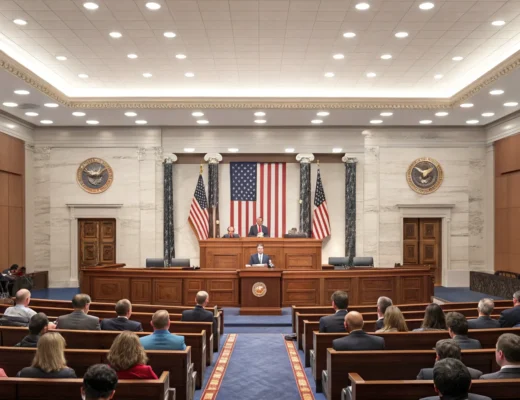Cryoport, a leading player in the embryo transportation industry, has halted its activities in Alabama due to a decisive verdict by the state Supreme Court. The enforced discontinuation, driven by regulatory and compliance concerns, disrupts a myriad of fertility clinics and aspiring parents, stirring the waters of embryo transport services. Currently assessing potential responses to this situation, Cryoport remains hopeful of alleviating these issues and resuming its critical reproductive services for Alabamans.
The court ruling restates frozen embryos produced via in vitro fertilization (IVF) as children in a legal context, directly leading to Cryoport’s standstill. This unexpected interruption leaves many couples in a state of unpredictability regarding their stored embryos. Amid this, the scientific fraternity argues against this decision for potentially hindering reproductive biology research and innovation.
Legally, the possibility of such a restatement has been questioned, with concern about setting troublesome precedents. With a firm action plan to adapt to the new legislation, Cryoport is keen on securing the rights of all involved parties.
This situation has given rise to passionate national dialogues and debates, epitomizing a straightforward divide between supporters and those against this ruling. Amid this controversy, observers are questioning the ethics governing the swiftly evolving arena of gene editing and assisted reproduction. Such debates resonate globally with numerous countries contemplating the implications for their corresponding genetic and reproductive laws. Consequently, Cryoport and other such services find themselves at the eye of a brewing cultural and scientific storm.
Cryoport, in a public announcement, explained its decision and vowed to resume services once they identify the implications of the law’s verdict on their operations, clinics, and intended parents. The company has portrayed corporate responsibility in notifying local fertility clinics about their decision and offering compensation for planned yet halted shipments. They remain committed to client transparency, full disclosure, and ethical business practices. Their actions further underline their dedication to customer satisfaction, a fact echoed by their proactive approach in reimbursing customers for planned shipments placed on hold due to the sudden discontinuation.
In the wake of Cryoport’s suspension, three Alabama-based fertility clinics have halted operations while examining the potential legal implications of the law’s verdict on their services. This sudden pause revokes pre-existing procedures and directly impacts pertinent fertility treatments and patient care. The suspension of these services adds to patients’ distress and anxiety in what’s already a challenging time. However, the clinics reassure their patients of their ongoing efforts to resume operations as soon as the legal clouds clear.
This groundbreaking ruling originated from a case involving a couple who lost their stored embryos in a clinical mishap. Clinics are now potentially open to wrongful death claims if any errors occur in handling and maintaining frozen embryos. This verdict underscores the importance of formidable technology to prevent cases of mishandling and sets a precedent for future cases.
In the end, this ruling impacts not just patients planning to transfer embryos out of Alabama but potentially disrupts fertility treatments nationwide. It highlights the increased necessity for inclusive, comprehensive policies that protect and support individuals seeking fertility treatments.







